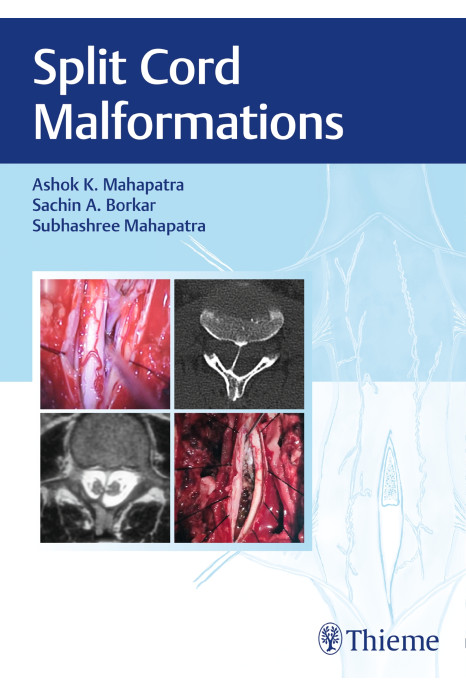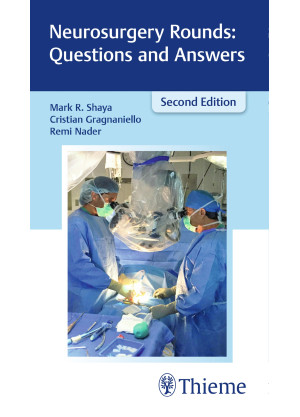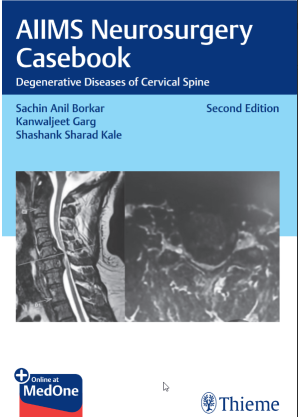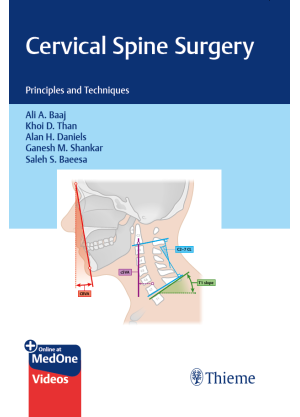Split Cord Malformations is written with the purpose of providing a complete overview of the management of this rare condition. The book benefits from the rich experience and expertise of its contributing authors in the management of spinal dysraphism in general and split cord malformation in particular. The book highlights the way a SCM patient must be treated to get excellent results. This book has 14 chapters dealing with all aspects of SCM ranging from embryology, diagnosis, and management.
Key Features
- Clear depiction of the types of Split cord malformations.
- Various classification systems of SCM are covered along with their surgical implications.
- Dorsoventral spur, its pathogenesis, and treatment nuances are discussed in detail as it is a special condition needing special care to prevent spinal cord damage.
- Management of SCM type I and type II needs specific attention as they are of different nature. The explanations offered in the book cover both adequately.
- Protocol for SCM management is discussed along with long-term outcome.
- It also showcases a separate chapter on complex SCMs. The associated pathology like meningomyelocele, lipoma, thick filum, and congenital tumors must be managed on their own merit. Hence, proper diagnosis of the complex SCM helps in planning surgical strategy.
- Anesthesia consideration for planning surgery in small babies is essential which is thoroughly catered in this book.
1. Introduction to Split Cord Malformations
2. Embryology of Split Cord Malformations
3. Classification of Split Cord Malformations
4. Split Cord Malformations Type I
5. Split Cord Malformations Type II
6. Dorsal Spur
7. Cervical Split Cord Malformations
8. Composite Split Cord Malformations or Multisite Split Cord Malformations
9. Adult Split Cord Malformations
10. Complex Split Cord Malformations
11. Prophylactic Surgery in Split Cord Malformations
12. Protocol for Management of Split Cord Malformations
13. Long-Term Outcome of Split Cord Malformations
14. Anesthesia for Neural Tube Defects











